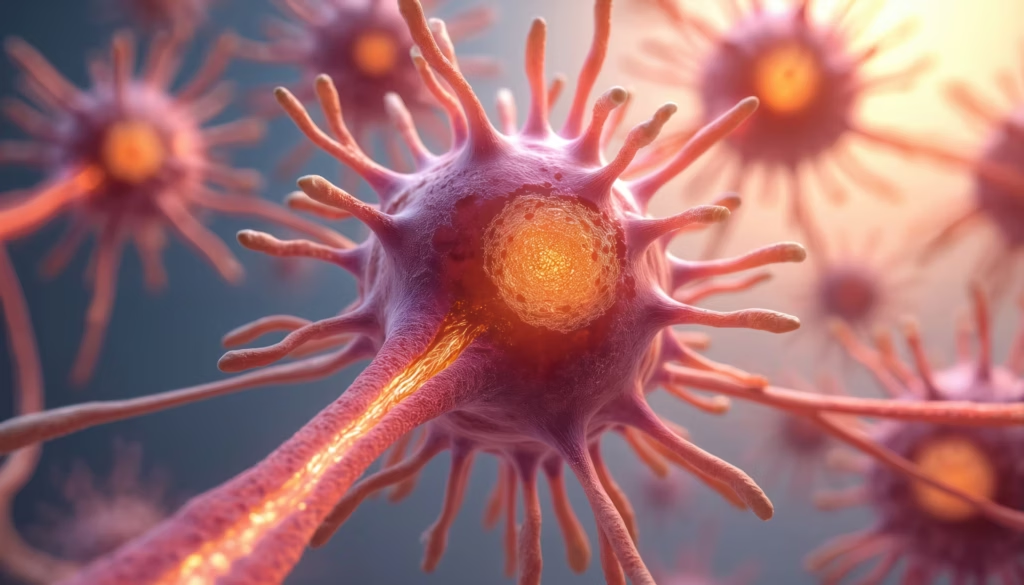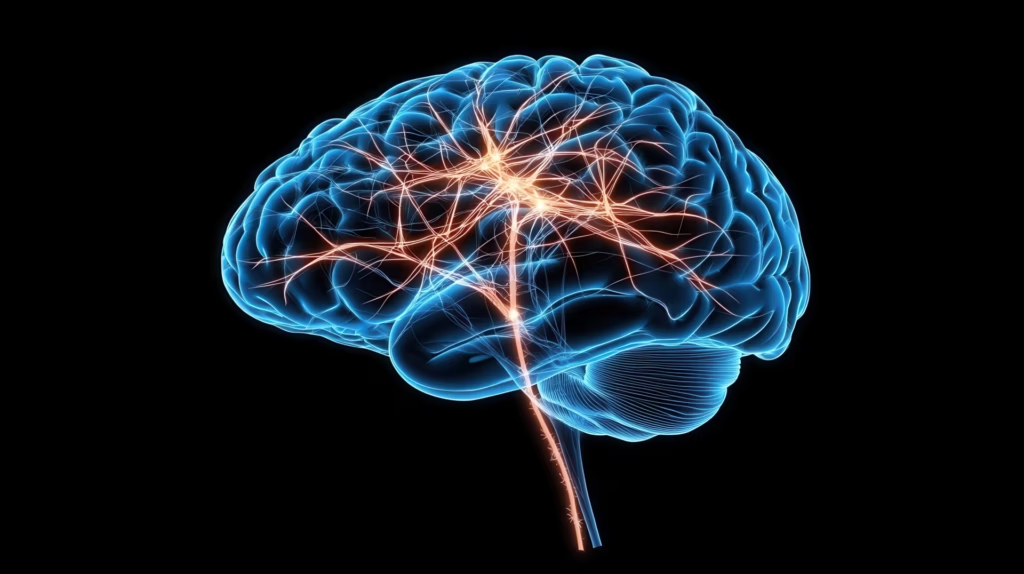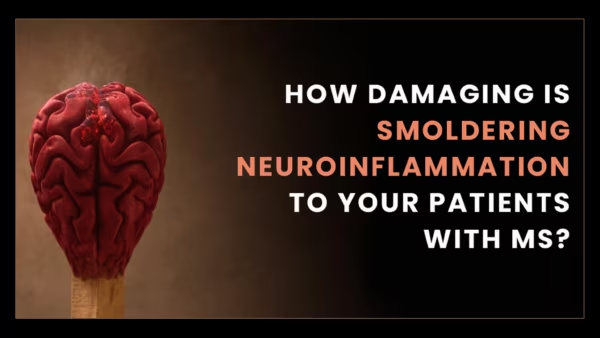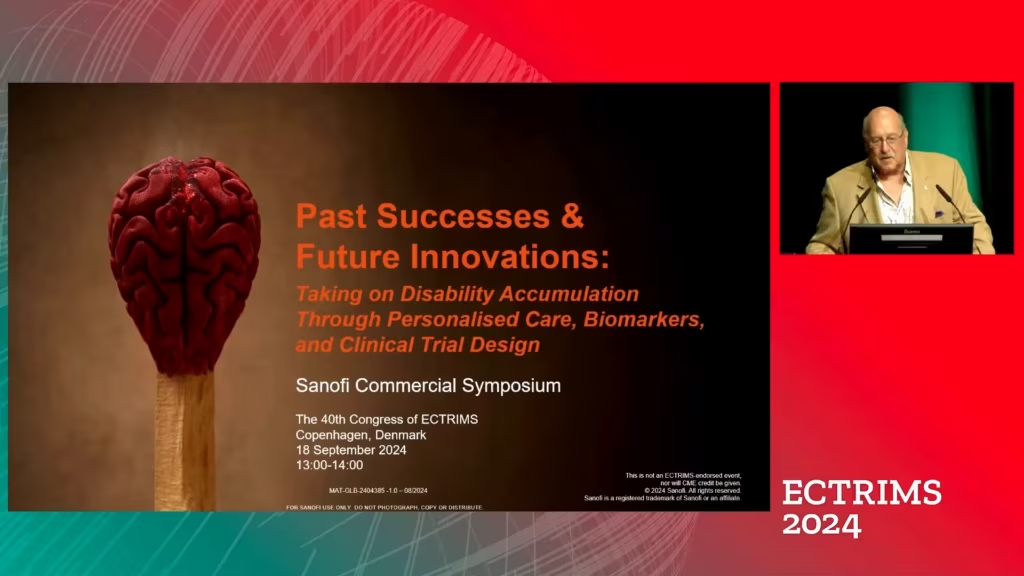Search Results
Showing Results for multiple sclerosis

Emerging data at EAN 2025 reveals key innovations across multiple neurological disease areas. In this article, you will learn:

At EAN 2025, Prof. Moccia shared his perspective on the evolving multiple sclerosis McDonald criteria, the role of advanced imaging and fluid biomarkers, and the exciting innovations reshaping MS diagnosis and management.

Physician burnout is at a critical point. In this episode, Nicky speaks with Dr Alfred Atanda about why so many physicians are burning out and what can be done to change the trend. From personal experience to system-wide solutions, Dr Atanda shares valuable insights on improving physician well-being and building a more effective healthcare culture.

In this episode of Visionary Voices, Dr Anthony Caggiano, Chief Medical Officer at Cognition Therapeutics, joins us to explore how biomarkers are transforming our understanding of Alzheimer’s disease, from diagnosis and disease progression to drug development and the future of clinical care.

Amyotrophic lateral sclerosis (ALS) is a neurodegenerative disorder of upper and lower motor neurons that results in progressive motor impairment. ALS is the most common disease of motor neurons with an annual incidence of approximately 1.7–2.5 per 100,000 people. It is a ...

In this episode, we explore the future of continuing medical education (CME) with the team behind touchIME. Hannah Fisher and Matthew Goodwin share insights into global and US trends, the importance of patient inclusivity and how educational outcomes are evolving to better measure the direct impact of learning on clinical practice and patient care.

"this is a field where rigorous science can rapidly change lives" Dr Bardia Nourbakhsh, Associate Professor of Neurology, Johns Hopkins University, Baltimore, MD, USA, is a rising star whose work bridges rigorous clinical neurological research with compassionate, patient-centred care. ...

Multiple sclerosis (MS) is a chronic neurological condition that often presents with vague or intermittent symptoms, making early recognition particularly challenging in primary care. As diagnostic delays can significantly impact long-term outcomes, timely identification and referral are critical. In alignment ...

Join an expert as they discuss MS pathophysiology and the potential of BTK inhibitors to delay progression.

Amyotrophic lateral sclerosis (ALS) is characterized by the degeneration of both upper and lower motor neurons, which ultimately leads to muscle weakness, atrophy, spasticity and contractures.1 ALS typically manifests in the 50–60 years age range, although familial cases may present in ...

touchNEUROLOGY is delighted to congratulate Dr Amit Bar-Or of Penn Medicine on receiving the 2025 John Dystel Prize for Multiple Sclerosis Research, jointly awarded by the National Multiple Sclerosis Society (NMMS) and the American Academy of Neurology (AAN). This honour recognizes his groundbreaking work in neuroimmunology, precision medicine, and biomarker research in multiple sclerosis (MS).

Over the past two decades, the understanding and management of multiple sclerosis (MS) have advanced dramatically, reshaping long-held views of the disease. MS is now increasingly seen as a continuous spectrum rather than a condition with distinct phases, with evidence showing it can begin silently, even before clinical symptoms emerge. Technological and diagnostic innovations have enabled the detection of early brain changes and biomarkers, opening doors to earlier diagnosis and intervention. New diagnostic criteria allow MS to be identified without a clinical event, and studies on disease-modifying therapies (DMTs) support the benefits of early treatment. A major shift in treatment strategy is also underway, emphasizing early, aggressive approaches and therapies that target progression rather than just relapses, which are no longer seen as the main driver of long-term disability. A pivotal development in MS research is the confirmation of Epstein–Barr virus (EBV) as a fundamental trigger of the disease, with new evidence pointing to specific viral protein regions as higher-risk factors. Despite these strides, MS research remains a dynamic and evolving field, with much still to be uncovered beneath the surface.

The 2025 Annual Meeting of the American Academy of Neurology in San Diego brought together over 14,500 neurology professionals from 110 countries and all 50 US states, alongside more than 300 exhibiting companies. It was a week filled with inspiring science, learning, and global collaboration—all in support of advancing brain health for all. Among the many highlights were the late-breaking abstracts, showcasing some of the most exciting developments in neurology. From this impressive selection, we’ve chosen five standout presentations that reflect the innovation and momentum seen throughout the meeting.


Sanofi at ECTRIMS 2024. Join MS experts as they examine disability accumulation through the lens of personalised care, biomarkers, and clinical trial design. Hear their perspectives on the complexities of balancing improved relapse management with the ongoing challenge of disability accumulation.
Latest articles videos and clinical updates - straight to your inbox
Log into your Touch Account
Earn and track your CME credits on the go, save articles for later, and follow the latest congress coverage.
Register now for FREE Access
Register for free to hear about the latest expert-led education, peer-reviewed articles, conference highlights, and innovative CME activities.
Sign up with an Email
Or use a Social Account.
This Functionality is for
Members Only
Explore the latest in medical education and stay current in your field. Create a free account to track your learning.




